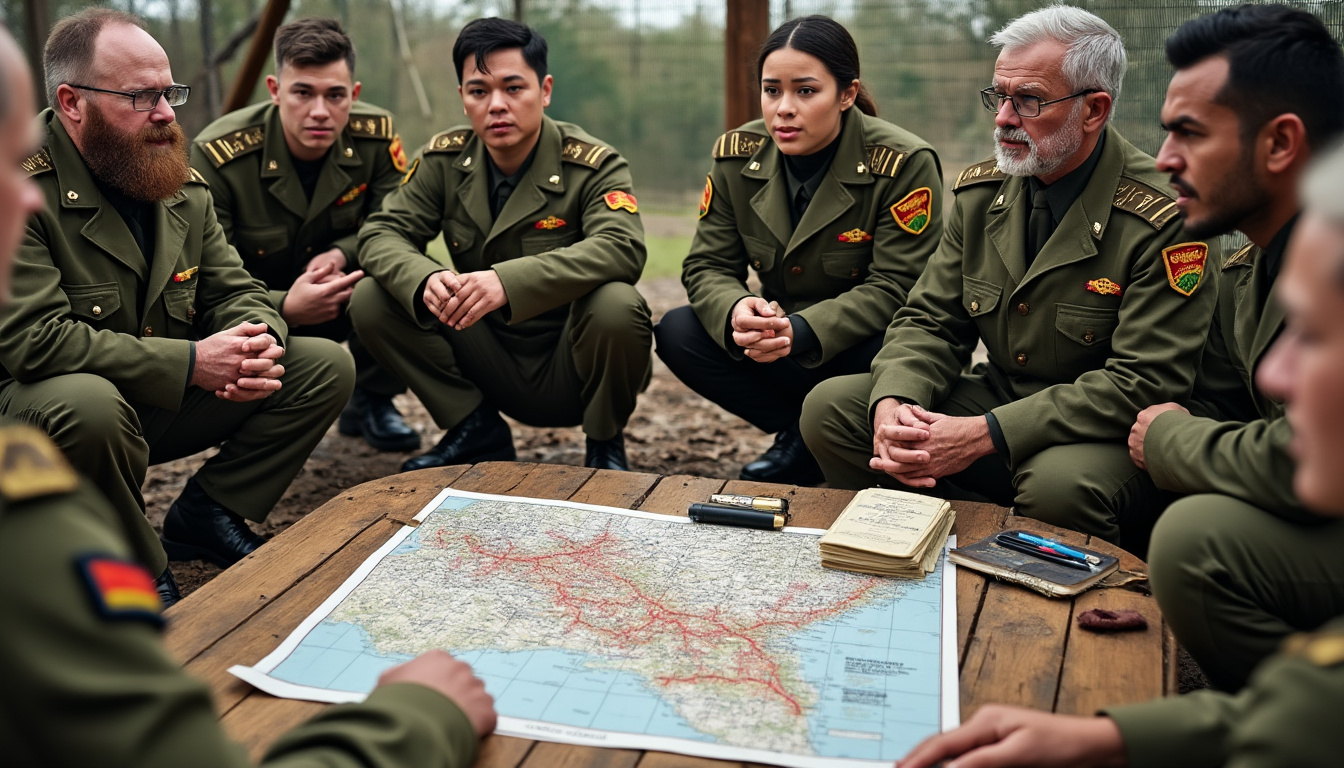Becoming a reservist in the French army constitutes an opportunity for many citizens eager to serve their country while continuing their civic life. This path of engagement, open to a wide audience, offers the possibility to acquire new skills and integrate into a dynamic and supportive community. Interested individuals must, however, meet various conditions, particularly in terms of age, physical fitness, and personal commitment. The French army notably offers two categories of reserves: the citizen reserve and the operational reserve, each presenting its own specificities. Entering this adventure requires a good understanding of these criteria and the steps to take to join the ranks of the Army, the Navy, or the Air Force.
The missions of reservists vary significantly, ranging from assistance during national crises to participation in operations abroad. This type of military engagement is a true act of civic duty, allowing for the reinforcement of social fabric and the development of values such as solidarity and mutual support. The commitments made within the framework of military service can also help acquire valuable professional skills. In this regard, becoming a reservist seems to be a tangible option for many citizens. This text will therefore focus on the requirements related to age, physical condition, and the commitments necessary to become a reservist in the French army.
Age requirements to become a reservist
The first criterion to consider concerns age, a crucial condition for those aspiring to join the ranks of reservists. Most branches of the French army set a minimum age requirement of 17 years, allowing young adults to begin their military journey as early as their adolescence. On the other hand, the maximum age to join the operational reserve is generally set at 35 years, although there may be exemptions depending on the army’s needs and the candidates’ profiles.

Age specificities by branch
It is important to note that each branch of the army may have its own specificities regarding the candidate’s age. For example:
| Branch | Minimum Age | Maximum Age |
|---|---|---|
| Army | 17 years | 35 years |
| Navy | 17 years | 35 years |
| Air Force | 17 years | 35 years |
This diversity of age among reservists contributes to creating an environment rich in perspectives and experience. Many reservists from different generations share their skills and know-how, thus fostering a team spirit based on respect and mutual learning. The universal national service (SNU) has also strengthened this engagement framework by encouraging young people to get involved in defense and security missions.
Physical fitness requirements for reservists
Beyond age, physical condition is another fundamental criterion for anyone wishing to become a reservist. The justification for this requirement lies in the fact that military missions can sometimes be physically demanding and require adequate preparation. Each candidate must undergo a series of medical and physical evaluations to prove that they are fit to fulfill their military obligations.

Physical test requirements
As part of the physical evaluation, reservists must undergo several tests, which may include:
- Running tests to assess endurance.
- Muscle strength exercises.
- Flexibility tests.
The results of these tests will determine the candidate’s eligibility to join the reserve. It is therefore crucial for those considering this commitment to prepare their physical condition accordingly. Many physical training programs are available to help achieve the required levels, notably through specialized fitness coaches.
The commitment required to become a reservist
Joining the reserve is a commitment that should not be taken lightly. Reservists are expected to enter into a commitment contract that defines their responsibilities and the army’s expectations. Generally, the duration of this commitment can vary, but it should typically be at least one year for the operational reserve.
Different forms of commitment
The commitment to the reserve can take different forms, including:
- Military volunteering, which offers the opportunity to participate in national or international security missions.
- Training and improvement internships to acquire specific skills.
- Participation in regular exercises and training to maintain physical and operational readiness.
Reservists are also encouraged to pursue their personal development while carrying out their missions, which can translate into training adapted to their civilian career. Commitments can also be adjusted based on the army’s needs and the reservists’ availability, thereby ensuring flexibility in managing their time.
Joining the reserves: Steps to follow
For those motivated to join the reserves, several steps must be followed. The first generally involves getting informed about the missions and roles available in the various branches of the army. Once well-informed, the candidate can proceed with their online registration or go directly to a military recruitment center.
Key steps for registration
The steps to follow include:
- Watch the presentation videos on reservist roles on the official platforms.
- Fill out an online registration form.
- Undergo medical and physical tests.
- Sign a reservist contract.
- Participate in orientation and initial training sessions.
These steps may vary slightly depending on the chosen branches of the army, and engagement advisors are available to assist prospective reservists throughout the process. It is essential to prepare well for each step to ensure the success of the registration and integration.
The social impact of reserve service
Reserve service also has a significant social impact. It creates bonds between reservists and their community and fosters civic engagement and the defense of republican values. By being a reservist, one demonstrates a strong commitment to the nation, which can inspire others to serve as well. This contributes to strengthening the sense of belonging and national pride.
The societal and personal benefits
The benefits of such engagement go beyond military experience. Here are some notable advantages:
- Acquisition of practical skills.
- Development of discipline and leadership.
- Reinforcement of social cohesion through community actions.
Every mission conducted by reservists helps create a stronger and more resilient community. Engagement in reserve military service also fosters the creation of a social network, which can be beneficial both personally and professionally.
Ultimately, choosing to become a reservist in the French army is an act that requires reflection, determination, and commitment. It requires meeting criteria regarding age, physical fitness, and commitment, without neglecting the social and personal impact it entails. The proposed pathway is accessible to all, and many resources are made available by the army to train future reservists. Those who commit to this path can be assured of contributing significantly to the defense of the nation while developing personally and socially.
My name is Lucas, and I am a fitness coach specializing in sports and well-being. Passionate about fitness and health, I am here to guide you on your journey toward better physical shape and a healthier life. Together, we will reach your goals and help you exceed your limits!

